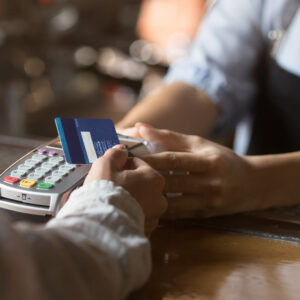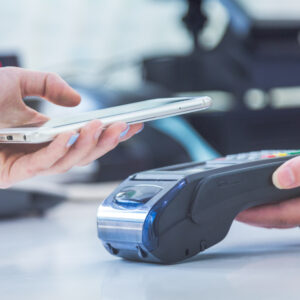Friendly fraud, which is sometimes called chargeback fraud, occurs when a customer makes a legitimate online purchase, receives the product or service, and then disputes the charge with their bank or card issuer. The reasons can vary from genuine confusion to deliberate manipulation.
In many cases, the cardholder might forget the purchase, fail to recognize a transaction on their statement, or respond to unauthorized use by a family member. Regardless of intent, the result is the same: the merchant loses revenue, gets hit with fees, and risks potential damage to their payment reputation.
Why It’s Called “Friendly” Fraud
Don’t believe the name, there’s nothing friendly about it. The term “friendly” simply refers to the idea that the fraudster is not a third-party criminal, but actually a known or trusted individual—often the cardholder themselves or a family member in their household.
For example:
- A parent disputes a gaming charge without realizing their child was the one who made the purchase.
- A customer forgets they subscribed to a music service or online coaching program and reverses the charge.
- Someone doesn’t recognize your merchant name on their statement and files a dispute.
These cases may start with a misunderstanding, but they could still end up costing you revenue and reputation.
How Common Is Friendly Fraud?
Friendly fraud now accounts for over 70% of all online fraud. It became especially rampant during the pandemic when millions of new consumers transitioned to e-commerce for the first time. For digital natives, navigating a checkout is second nature.
But for late adopters, confusion around digital payments has led to a surge in disputes. What’s even more alarming for businesses is that 40% of customers who commit friendly fraud do it again within 60 days.
It seems like once the chargeback habit starts, it’s very hard to stop.
Common Causes of Friendly Fraud
Most friendly fraud starts at home and could involve your own family, confusing names for charges, refund abusers, or even people facing a case of buyer’s remorse.
Family Fraud
Every parent in the digital age faces this problem. You tell your kid they can’t have that new gaming system or sneakers, only for them to steal your card or your password and buy it anyway. That’s when the parent files a dispute, possibly without even knowing their kid made that buy.
Transaction Confusion
If your business name isn’t easily recognizable on a customer’s statement, they may assume it’s a fraudulent charge and report it. It could also be a case of someone making a purchase and then not remembering it when they see the charge a couple of days later.
Refund Abuse
Some customers exploit flexible return policies. They may use or damage an item before requesting a chargeback instead of a legitimate return. This is especially common on marketplaces like eBay or Etsy.
Impulse Regret
A customer makes a quick impulse buy, regrets it, and tries to use a chargeback as a way to undo it without having to go through the return process.

How Friendly Fraud Impacts Businesses
The financial cost of a chargeback is more than just the transaction amount. For a $100 chargeback, you could lose up to $100 in fees, and that doesn’t include the actual product.
Worse yet, friendly fraud is notoriously difficult to fight. Businesses only win around 45% of the chargebacks they challenge. With high dispute rates, you also risk:
- Higher processing fees
- Reserve requirements
- Frozen accounts or terminated payment processing
Why Friendly Fraud Is On the Rise
E-commerce is booming and growing, while fraud is growing along with it. In the past five years alone, digital payment volume has doubled. At the same time, consumers are making purchases faster and more impulsively than ever, especially when they use:
- BNPL (Buy Now Pay Later) services like Afterpay and Klarna
- Digital wallets like Apple Pay, Google Pay, and PayPal
Studies show that frequent BNPL users are also more likely to file chargebacks. With one-click purchases and minimal friction, it’s easier than ever for consumers to dispute transactions, all without understanding how it affects the merchants they’re buying from.
How to Prevent Friendly Fraud
While you can’t protect yourself from every form of friendly fraud, there are real steps you can take to lower your risk:
Maintain a Blacklist
Flag and block users who have a history of filing chargebacks. Repeat offenders are statistically likely to do it again, so do everything you can to prevent them from doing it.
Monitor Transactions
Watch for suspicious behavior: rapid order patterns, multiple cards used by the same user, or inconsistent geolocation/IP data.
Investigate Emails
Look for disposable or suspicious email domains. Fraudsters often use temporary or scrambled addresses to avoid detection.
Educate Your Team
Stay informed on evolving fraud tactics. Awareness is your first line of defense, so reading this article was a good way to start that education.
Choose a Secure Processor
Some platforms, like PayPal, are more vulnerable to scams and phishing. Luqra is built differently. Our payment infrastructure emphasizes real-time fraud prevention, direct support, and flexible controls tailored to your risk profile.
Luqra Protects What You’ve Built
You’ve worked hard to grow your business. Don’t let friendly fraud chip away at your revenue or reputation. Luqra was designed to support growing merchants with:
- Transparent terms
- Real human support
- Custom-fit fraud detection
- Chargeback mitigation tools

Call Now to Secure Your Processing
Talk to a Luqra specialist who can help reduce fraud and secure your revenue.
Common Questions About Friendly Fraud
What is friendly fraud?
It’s when a customer disputes a legitimate transaction through their card provider or payment platform, often after receiving the product or service.
How common is friendly fraud?
It represents more than 70% of online fraud and continues to grow as more people shop online.
What causes friendly fraud?
Common causes include unauthorized use by family, unclear transaction descriptions, abuse of refund policies, and post-purchase regret.
Can it be prevented?
While it can’t be fully eliminated, merchants can prevent recurring fraud with blacklist tracking, transaction monitoring, and using payment processors with robust fraud defenses like Luqra.




